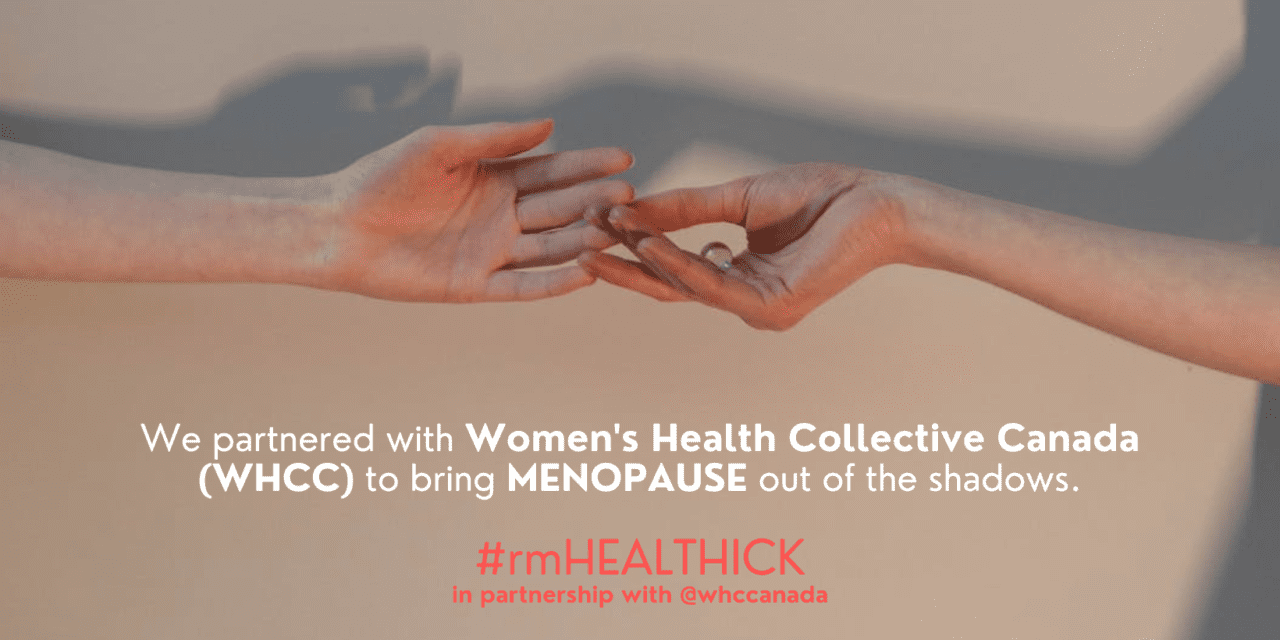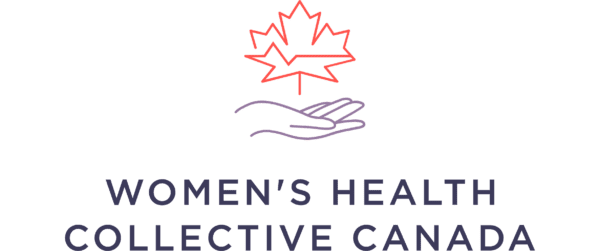Our incredible partner, Women’s Health Collective Canada, is working hard to bring menopause out of the shadows by championing women’s focused medical research. They’ve set out to equip women and their health care providers with accurate information about their health and encourage open conversations. In this post, you’ll meet 2 of those researchers and discover their findings!
***
Menopause is a natural and expected stage of life, but it has been shrouded in silence due to cultural taboos about women’s pelvic health. In turn, menstrual health research has suffered.
According to the BC Women’s Health Foundation:
“[H]istorically, women were largely excluded from medical trials. Failure to consider sex and gender in health research, by relying on men’s health as a proxy, effectively leaves women’s health to chance.”
This silence extends to patients themselves. A study from the Alberta Women’s Health Foundation found that menopause reticence has far-reaching consequences.
Unsure what to expect from menopause, or what falls within a healthy range of symptoms, women can sometimes suffer in silence. Pain is widely accepted as a “normal” part of female existence when it can often be treated. With the line between normal and concerning obscured, early detection of conditions like cancer becomes more difficult, negatively affecting prognoses.
Some amazing WHCC researchers are working to counter this by enlightening the medical field on the complexities and considerations associated with menopause. Here are two of them whose research studies we thought would pertain to our fellow rebels.
Meet Dr. Michelle Jacobson:
Dr Jacobson directs the Familial Ovarian Cancer Clinic at Women’s College Hospital in Toronto. She is a menopause specialist with an interest in menopause oncology and Hereditary Breast and Ovarian Cancer Syndrome.
Her latest research paper, A pragmatic approach to the management of menopause, summarized the evidence for treating menopausal symptoms with a careful discussion of the risks and benefits, to help guide clinicians in evaluating and treating women during the menopausal transition.
FINDINGS
- Menopausal symptoms can occur for as long as 10 years before the last menstrual period and are associated with substantial morbidity and negative impacts on quality of life.
- Menopausal hormone therapy is indicated as first-line treatment of vasomotor symptoms, and is a safe treatment option for patients with no contraindications.
- Though less effective, nonhormonal treatments also exist to treat vasomotor symptoms and sleep disturbances.
- It is critical that clinicians inquire about symptoms during the menopause transition and discuss treatment options with their patients.
LEARN MORE ABOUT DR MICHELLE JACOBSON
Meet Dr. Nese Yuksel:
Dr Yuksel is a Professor of Faculty of Pharmacy and Pharmaceutical Sciences at the University of Alberta. Her research program seeks to study aspects of women’s health, including “reproductive health and menopause to enhance our understanding women’s perspectives and improve the quality of care of women.” Her research program also looks to translate knowledge “through the development of evidence-based practice tools and resources in the areas of reproductive health, menopause and osteoporosis to support women and health care providers.”
This summer, Dr Yuksel published her research paper, Cannabis use for menopause in women aged 35 and over: a cross-sectional survey on usage patterns and perceptions in Alberta, Canada, with Katherin Babyn, Sue Ross, Mark Makowsky, Tony Kiang. The objective of this study was to examine the pattern of use and perceptions about cannabis for menopause in women aged 35 and over in Alberta, Canada.
FINDINGS
- One-third of women aged 35 and over in our survey reported current cannabis use and more than 65% used cannabis at some point in their life. Frequency of cannabis use ranged, however, most women who were current users used at least once daily. Our survey showed that two-thirds of women currently using cannabis used for medical purposes, yet most did not have cannabis medically prescribed. Current cannabis users indicated taking cannabis to manage menopause symptoms and found it helpful for their symptoms. To our knowledge, this is the largest study to directly investigate cannabis use and perceptions in a general population of women aged 35 and over.
- Further research is required to investigate the efficacy and safety of cannabis on menopause symptoms and foster the development of clinical resources for women to use in making informed decisions around cannabis for medical purposes.
LEARN MORE ABOUT DR NESE YUKSEL
***
Thank you to Women’s Health Collective Canada for allowing us to share these studies and their findings. If you’d like to stay up to date on the latest women-focused research happening in Canada, be sure to follow WHCC on Instagram and check into their website regularly!
A version of this post was originally published on April 28, 2023 on the WHCC Blog and has been reposted here with permission.
If you enjoyed this post, take a listen to the episode of our Rebel Mama Hotline podcast that we recorded last year with Dr Sue Ross. Dr. Sue Ross is a professor and research scientist from the Alberta Women’s Health Foundation who offers a common sense, age positive, and more-often-than-not drug-free approach to menopause and aging well. In this conversation, she tells us what she’s observed in those who cope best with the symptoms of menopause and shares some advice based on her findings. More podcast episodes featuring WHCC affiliated researchers are coming very soon so be sure to subscribe while you’re there!








From Our Comments